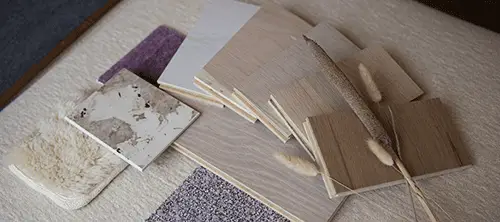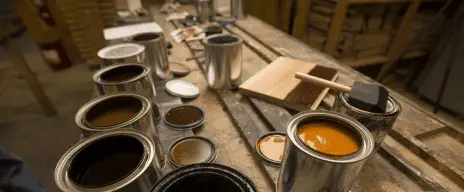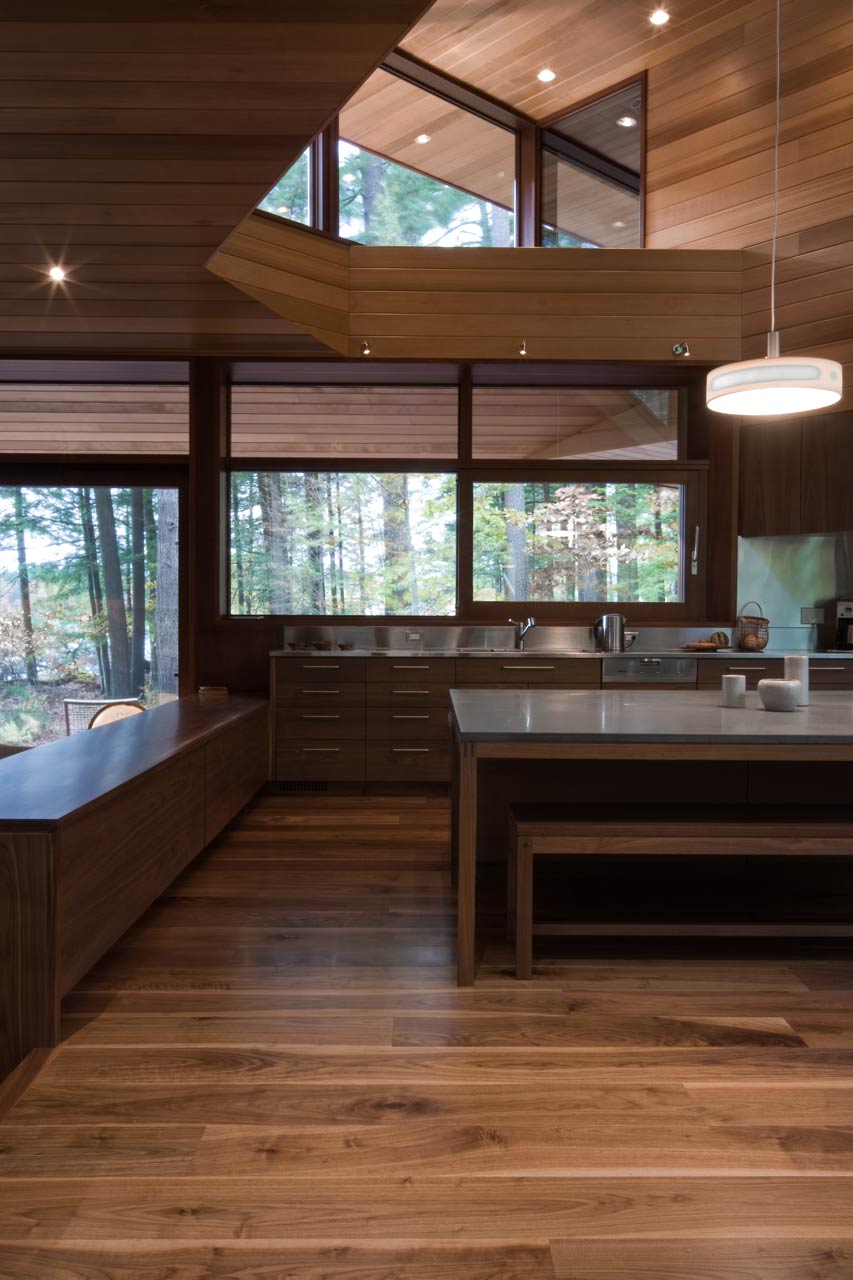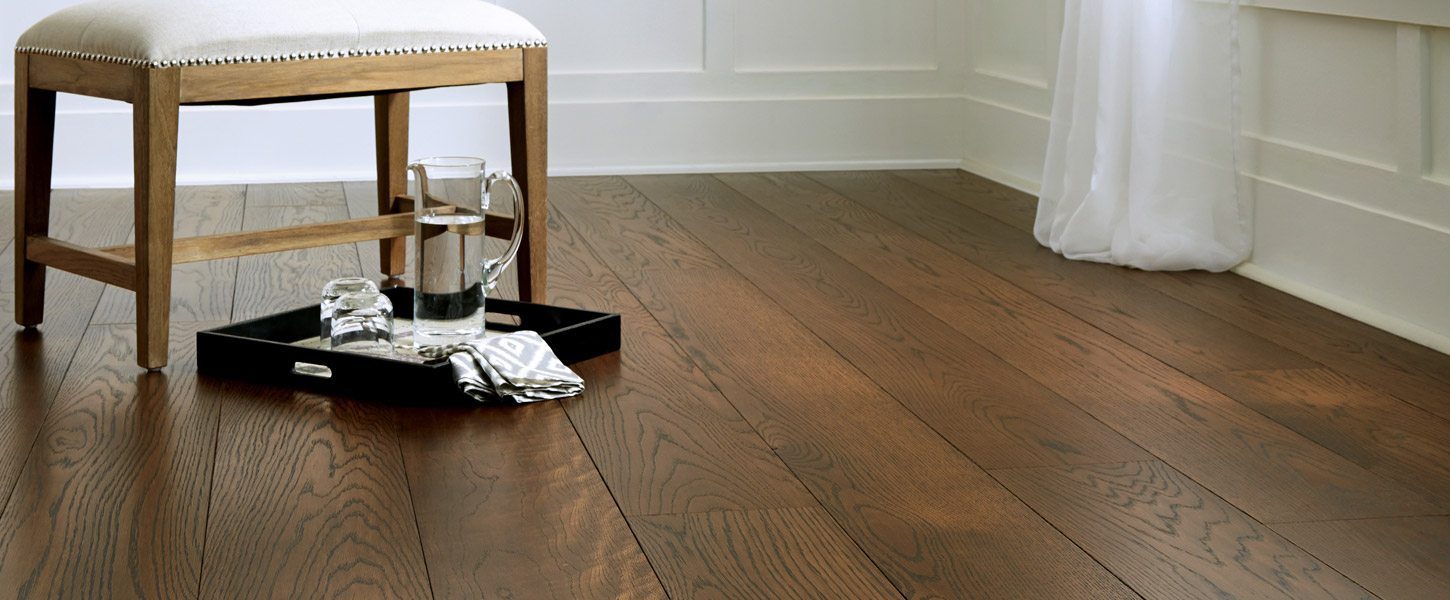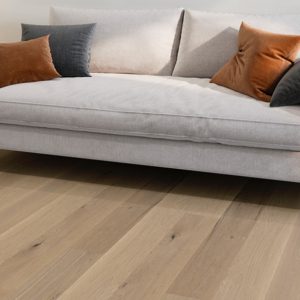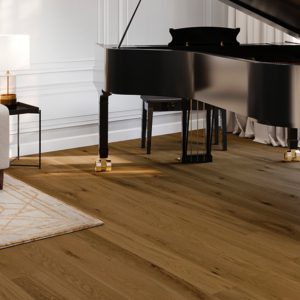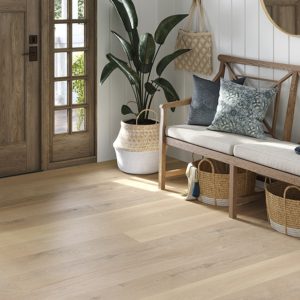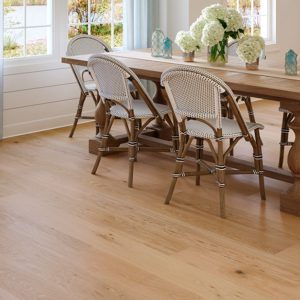Talk with us today about your project. We make it easy to browse, design, select and plan for your new wide plank floors with your own personal Carlisle Wide Plank Floor Specialist.
You have questions, we have answers. Explore the most frequently asked questions about Prefinished Hardwood flooring below. Need assistance or want to know more? Contact Carlisle or call 800-595-9663 today to get all your inquiries answered.
Are Prefinished Hardwood Floors Better?
Prefinished hardwood flooring is cut, sanded, stained and sealed in the factory-controlled conditions of a manufacturer’s facility before being delivered to a home or business for installation. There are several advantages and disadvantages to this process. Ultimately, the choice between a prefinished floor or a floor finished on site comes down to the preference of a home or business owner.
What are the advantages of prefinished floors?
For owners, prefinished floors make installation faster. They also eliminate the mess and odor of sanding and finishing a floor on-site as well as the inconvenience of having to vacate the premises and wait several days before the floors can be walked on. Manufacturers can apply multiple coats of stronger sealants to all sides of prefinished floors, helping to improve durability and increasing resistance to scratches, stains and wear. The controlled factory conditions enable a more consistent and uniform finish across all the boards. Lighter color floors typically have greater color variation due to the underlying tone of the wood. Prefinishing a lighter floor makes it easier to ensure a nicer transition between floorboards during layout since you’ll already know the final color tone of each.
What are the disadvantages of prefinished floors?
The most difficult part of a prefinished floor is ensuring that appropriate protection is applied after installation so that ongoing construction traffic does not damage the floor. Prefinished floors also require a slight ease on the edge and sometimes on the end of the plank. The only way to avoid this ease is to install unfinished wood, sand it on site and then apply the stains and finishes.
Are prefinished floors cheaper than finishing a floor on-site?
While they have a higher upfront cost, prefinished floors tend to be less expensive than floors finished on-site when all the costs of installation are factored in.
What are wide plank prefinished floors?
Wide plank prefinished floors are made with floor boards that are 5” to 20” wide and up to 12’ long. When compared to standard commercial flooring, a wide plank floor will have far fewer seems, giving the room a more spacious feel. Wide planks allow the personality of the wood and beauty of the grain to be fully revealed, creating a stunning flooring surface that can serve as the design centerpiece of any room.
What are prefinished floors vs. engineered floors?
Prefinished floors are made with solid hardwood floorboards that are cut, sanded, stained and sealed in a manufacturer’s facility. Engineered wood flooring is made with a veneer of hardwood that’s glued to multiple layers of backing material, creating a board with a strong core that’s less likely to expand or contract when exposed to changes in temperature and humidity. For this reason, engineered floors are ideal for installations below grade, in basements, over radiant heating systems or on concrete slabs. However, engineered floors should not be used in locations where the relative humidity drops below 30% for any extended period of time.
Can prefinished floors be refinished?
In theory, prefinished floors made of solid hardwood can be refinished just like floors finished on site. However, some prefinished floors have a thicker, more durable, factory-applied finish that may be more difficult to sand, or that may limit the number of times a floor can be refinished. It is important to work with your manufacturer to understand the type of finish used and what refinishing options exist.
Are prefinished floors easier to install?
Prefinished floors are generally easier to install than floors finished on site. Many prefinished floors use a tongue-in-groove or click-lock system that enables highly efficient installation. Prefinished floors don’t need to be sanded, stained or sealed on site, helping to speed installation. And because they are finished in the ideal conditions of a controlled factory environment, prefinished floors can be manufactured to precise specifications for a seamless fit.
How do you clean and maintain a prefinished hardwood floor?
Prefinished floors can be cleaned just as any other solid hardwood floor. Sweeping or vacuuming the floors will remove dirt and debris that can cause scratches and wear. For tougher dirt or contaminants, try lightly mopping a prefinished floor with a solution of water and vinegar (1 or 2 ounces of white vinegar to 2 gallons of water), an effective and eco-friendly cleaning solution.
Can prefinished floors be stained in any color?
Prefinished hardwood floors can be easily stained to a wide range of colors to meet the needs of any interior design scheme.
Can a prefinished floor be distressed or textured?
Some manufacturers can produce prefinished floors that are textured or distressed with hand-scraped edges or wire brush treatments, giving the floor the antique appearance of a surface that has been lived on for generations.
Is it ok to leave hardwood floors unfinished?
While it’s perfectly acceptable, it is not typically recommended to leave a hardwood floor unfinished, as these surfaces will tend to age faster and show scratches, scuffs, stains and wear more easily. An unfinished floor will absorb any spills, leaving a visible stain on the raw wood.
What is the difference between finished and unfinished wood floors?
Finished hardwood floors are treated with a topcoat of a sealant that forms a protective barrier against moisture and that is resistant to scratches, scuffs and wear. Hardwood floor finishes include polyurethane, hard wax and penetrating oils, aluminum oxide and acid-cured techniques. Unfinished hardwood floors are not treated with any kind of protective sealant, allowing the natural beauty of the wood to be fully appreciated. But they will require some type of protective coating after installation.
What is the most popular finish for hardwood floors?
Polyurethane finishes are the most common type of hardwood floor finish. A polyurethane finish is a liquid polymer or plastic material that forms a hard, protective, moisture-resistant coating when applied to floorboards. Polyurethane is available as both a water-based and an oil-based solution. Water-based polyurethane is more eco-friendly and offers a clear finish that dries fast, while oil-based polyurethane is more affordable and lends an amber hue to the floor, a feature that many homeowners prefer.
What is the toughest finish for hardwood floors?
Aluminum oxide is considered the toughest and most durable hardwood floor finish. Since aluminum oxide must be applied using specialized equipment in a controlled environment, this type of finish is available only in prefinished floors. It is important to understand the amount of aluminum oxide used in a product’s coating, as this will dictate whether or not the flooring can be refinished in the future.
Does Carlisle offer prefinished floors?
Carlisle Wide Plank Floors offers wide plank prefinished flooring in a broad range of hardwood species. Using small batch production, we employ a specialized “five coat” process that delivers an extremely durable finish, giving each floorboard a deep, hand-rubbed appearance rather than one that is painted on. All Carlisle Custom Coat finishes are environmentally friendly and contain no measurable volatile organic compounds (VOCs) that can pose a health hazard.
